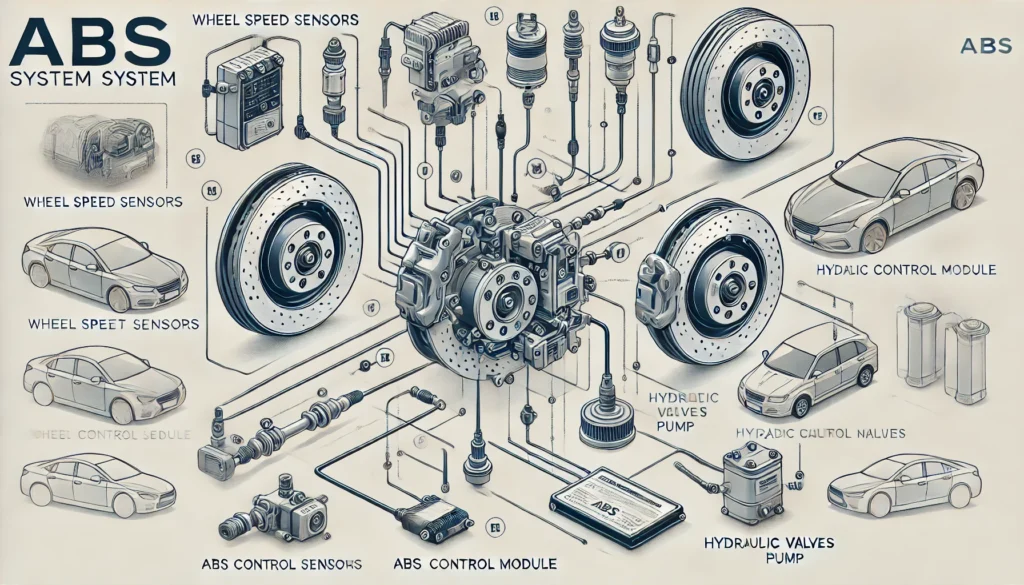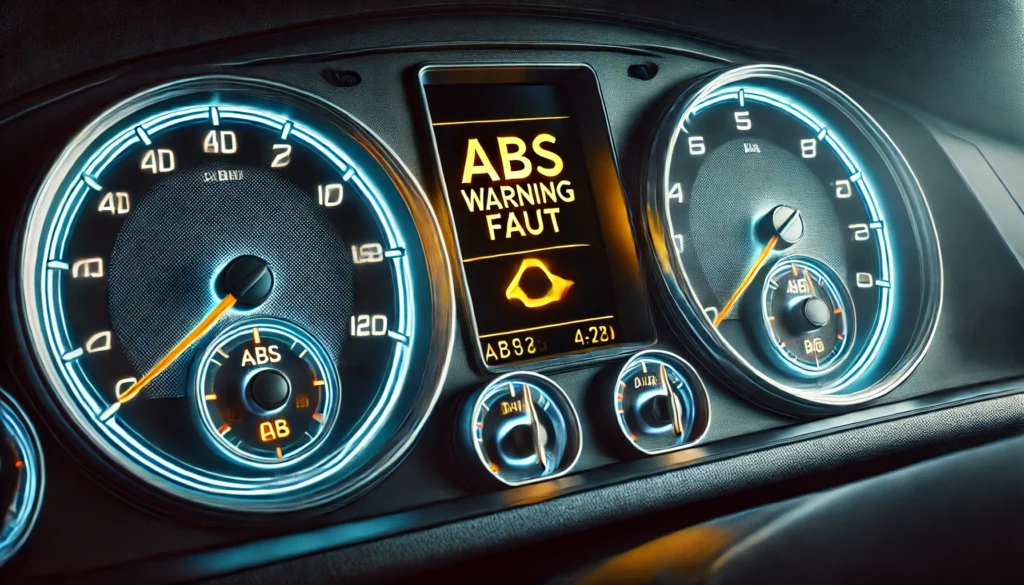The Anti-lock Braking System (ABS) is a crucial safety feature in modern vehicles, designed to prevent the wheels from locking up during braking and maintaining steering control. When the ABS system malfunctions, indicated by the ABS warning light on the dashboard, it raises several concerns about vehicle safety and performance. One common question is whether an ABS fault can make the engine hard to start. Understanding the relationship between ABS faults and engine starting issues is essential for effective vehicle maintenance and troubleshooting.
Understanding ABS and Its Function
The ABS system consists of several key components:
- Wheel Speed Sensors: Monitor the speed of each wheel.
- ABS Control Module: Processes data from the wheel speed sensors and controls the hydraulic valves.
- Hydraulic Valves: Regulate brake pressure to prevent wheel lockup.
- Pump: Restores pressure to the hydraulic brakes after the valves release it.

Impact of ABS Fault on Engine Starting
- No Direct Impact on Engine Starting:
- Explanation: The ABS system is designed to manage braking performance and does not directly interact with the engine’s starting system. Therefore, an ABS fault should not cause the engine to be hard to start.
- Scenario: A vehicle with an ABS fault can typically start the engine without any issues related to the ABS system itself.
- Indirect Impact Through Electrical Issues:
- Explanation: While an ABS fault does not directly affect engine starting, electrical issues that cause ABS faults could potentially affect other systems, including the starting system.
- Scenario: If there is a major electrical fault affecting the vehicle’s power supply, it could impact both the ABS system and the engine starting process.

- Battery and Alternator Issues:
- Explanation: Problems with the battery or alternator can cause both ABS faults and engine starting issues.
- Scenario: A weak or failing battery might not provide sufficient power to start the engine and also trigger the ABS warning light due to low voltage.
- Faulty Ground Connections:
- Explanation: Poor ground connections can cause various electrical issues in the vehicle, including ABS faults and engine starting problems.
- Scenario: Corroded or loose ground connections might lead to inconsistent electrical performance, affecting multiple systems in the vehicle.
Steps to Diagnose and Address ABS and Starting Issues
- Check Battery and Alternator:
- Steps: Test the battery and alternator to ensure they are providing adequate power. Replace the battery or alternator if necessary.
- Importance: Ensuring a reliable power supply can resolve both ABS faults and engine starting issues.
- Inspect Electrical Connections:
- Steps: Check all electrical connections, including ground connections, for signs of corrosion or looseness. Clean and secure any faulty connections.
- Importance: Good electrical connections are essential for the proper functioning of all vehicle systems.
- Use an OBD-II Scanner:
- Steps: Connect an OBD-II scanner to read error codes related to the ABS and starting systems. These codes can help identify specific problems.
- Importance: Accurate diagnosis is key to addressing both ABS faults and starting issues effectively.

- Consult a Professional Mechanic:
- Steps: If you are unable to diagnose or repair the issues yourself, seek assistance from a certified mechanic. They have the expertise and tools to address complex problems.
- Importance: Professional diagnosis and repair ensure that the vehicle is safe and reliable.
Conclusion
An ABS fault does not directly make the engine hard to start. However, underlying electrical issues that cause ABS faults could potentially affect the engine starting process. Ensuring a reliable power supply and good electrical connections is crucial for maintaining the proper functioning of all vehicle systems. Regular maintenance and prompt attention to warning lights are essential for vehicle safety and performance.